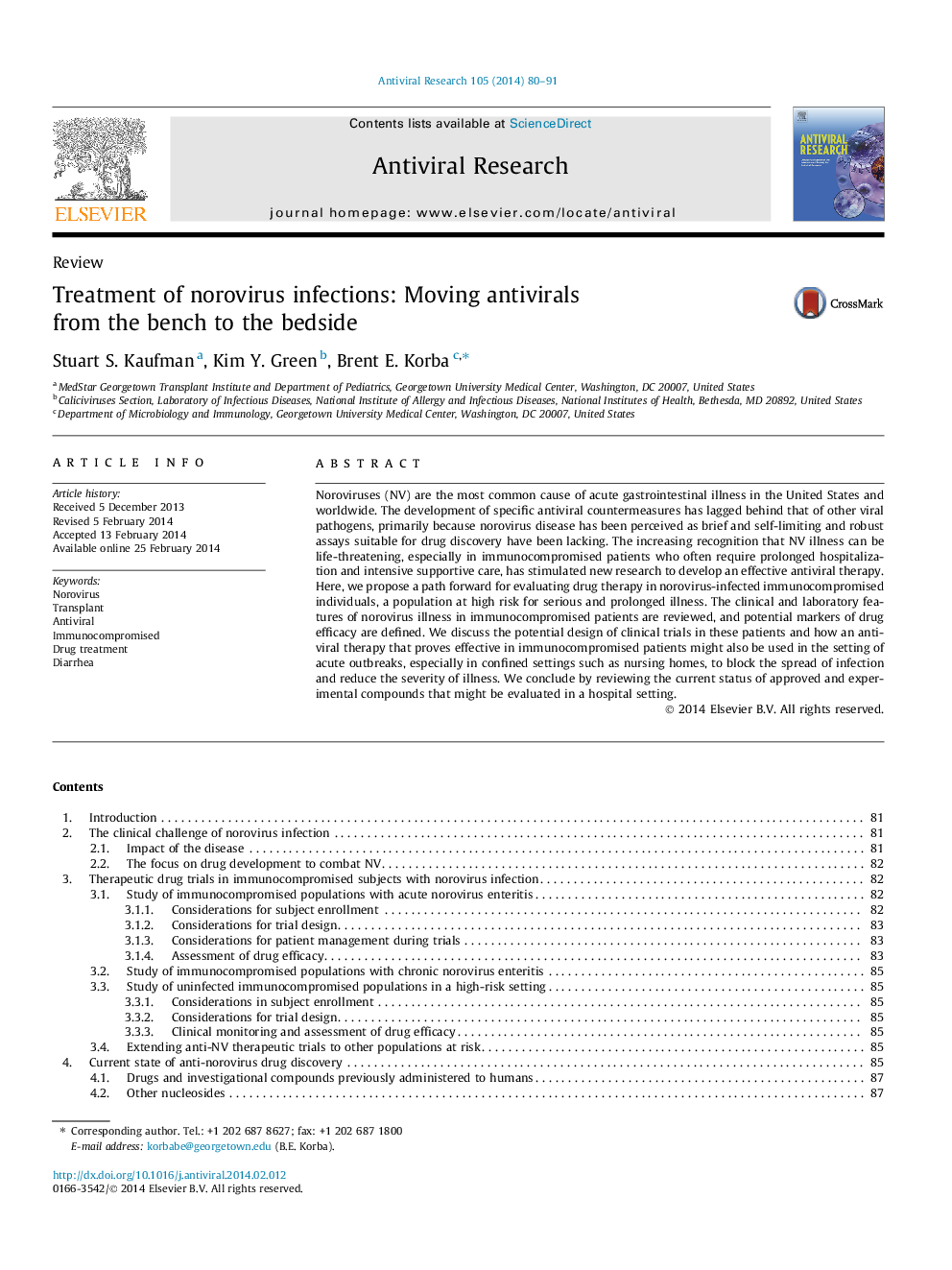| Article ID | Journal | Published Year | Pages | File Type |
|---|---|---|---|---|
| 5822225 | Antiviral Research | 2014 | 12 Pages |
Abstract
Noroviruses (NV) are the most common cause of acute gastrointestinal illness in the United States and worldwide. The development of specific antiviral countermeasures has lagged behind that of other viral pathogens, primarily because norovirus disease has been perceived as brief and self-limiting and robust assays suitable for drug discovery have been lacking. The increasing recognition that NV illness can be life-threatening, especially in immunocompromised patients who often require prolonged hospitalization and intensive supportive care, has stimulated new research to develop an effective antiviral therapy. Here, we propose a path forward for evaluating drug therapy in norovirus-infected immunocompromised individuals, a population at high risk for serious and prolonged illness. The clinical and laboratory features of norovirus illness in immunocompromised patients are reviewed, and potential markers of drug efficacy are defined. We discuss the potential design of clinical trials in these patients and how an antiviral therapy that proves effective in immunocompromised patients might also be used in the setting of acute outbreaks, especially in confined settings such as nursing homes, to block the spread of infection and reduce the severity of illness. We conclude by reviewing the current status of approved and experimental compounds that might be evaluated in a hospital setting.
Related Topics
Life Sciences
Immunology and Microbiology
Virology
Authors
Stuart S. Kaufman, Kim Y. Green, Brent E. Korba,
